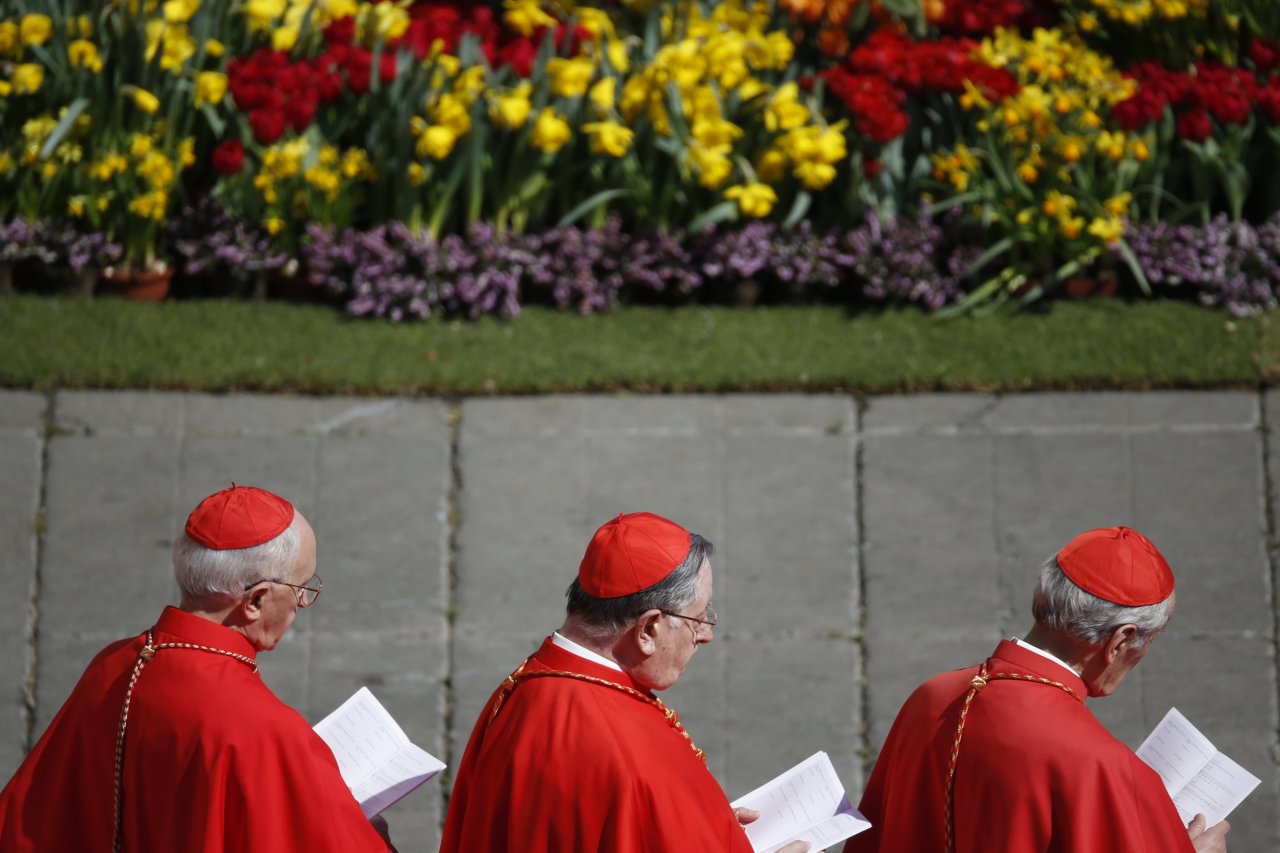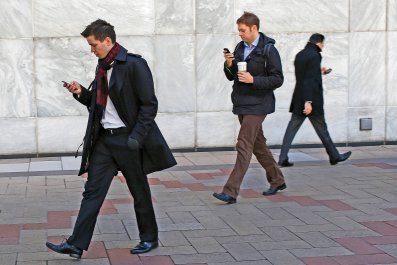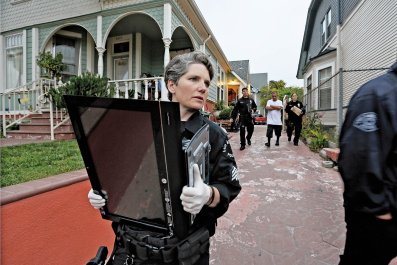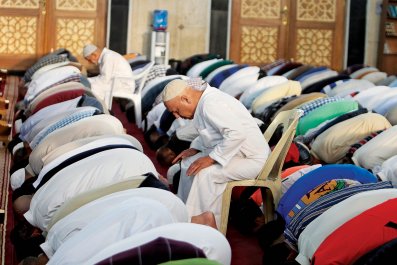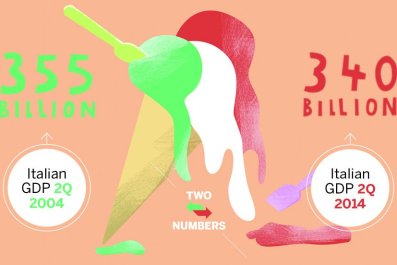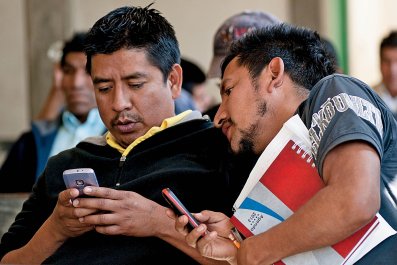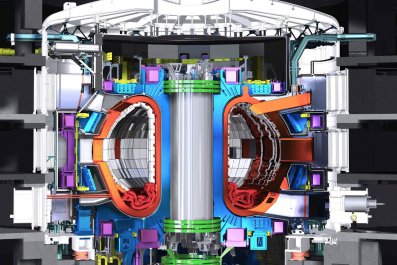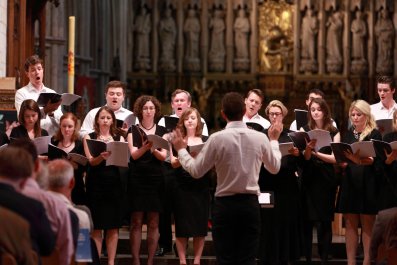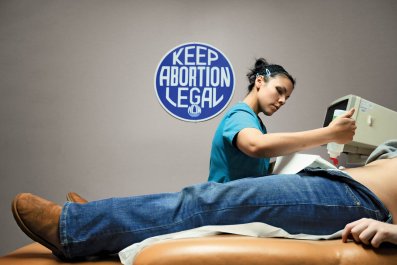The reason Italians do not pay tax is because they are Catholics. That was the view expressed recently by Rossella Orlandi, new head of Italy's Agenzia delle Entrate (Inland Revenue) – and it caused a stir.
"We are a deeply Catholic country used to committing sins and receiving absolution," she told a meeting of top Italian businessmen.
The remark prompted embarrassed laughter from her well-heeled audience but it did not amuse the Catholic church, as an editorial in L'Avvenire, the daily newspaper of the bishops, made clear: "Catholic culture, and even more so Catholic doctrine, say quite the opposite on tax evasion and considers it theft, a grave sin and a serious social injustice, and reminders of this in the sermons of bishops and priests are frequent."
Signora Orlandi – appointed to her post by the new centre left Italian Prime Minister Matteo Renzi – felt compelled to issue an apology in the form of a letter to L'Avvenire which was not really an apology at all: "I am sorry if my words caused misunderstanding or upset people's feelings," she said. Her remark, she explained, had been meant as "a joke".
There the lively polemic might have ended. But in Italy, tax evasion is endemic and the black economy accounts for roughly 20% of GDP. According to the Agenzia delle Entrate's own estimates, €130bn a year is lost in unpaid tax in Italy – more than in any other country in the developed world.
Yet the truth is that the Catholic church's attitude to tax is not as simple as either Signora Orlandi or L'Avvenire would have people believe.
The reason there is so much tax evasion in Italy is simple. Those Italians who do not work for the state but whose small businesses form the backbone of the economy regard the state as the enemy – a corrupt and parasitical monster – whichever political party is in power.
Yet the state controls – thanks to tax – so much of the economy that many millions of other Italians, in addition to public employees, also depend on it for their livelihoods. So while most small businessmen despise the state, many big businessmen take a different view because the state is often bankrolling them. Even newspapers in Italy receive large state subsidies.
"We just cannot take it any more. We are on the edge of the abyss and we cannot afford this luxury of the big state that looks after everyone and everything," says Mauro Graziani, 41, from Ravenna, a practicing Catholic who attends mass each Sunday. He owns a small company that supplies specially programmed "security guard" drones to industry. "I pay in tax more than 60% of the €100,000 a year I have left after my expenses which is let's face it daylight robbery," he adds.
The fiscal burden in Italy is now 53% of GDP – the highest in the developed world – which means that for every euro earned more than half – 53 cents – goes in tax – in theory at least.
Yet Italy's sovereign debt at €2.1tn has now reached nearly 135% of GDP (the third highest in the world after Japan and Greece as a percentage of GDP). The official unemployment rate as of June is a record 12.3% (43.7% in the under-25 age group) and the real figure far higher because the state pays hundreds of thousands of people employed by failing companies to remain employed but not work.
Meanwhile, Italy is once again back in recession for the third time in six years with two consecutive quarters of negative growth in 2014 (minus 0.1% and minus 0.2%). Italy has become the sick man of Europe, sicker than France – and, critics point out, it is largely thanks to the Italian state.
In addition, Italy's bureaucracy and judiciary is such that every day or two there are reports of Italian businessmen committing suicide.
"We Italians are like the Americans at the time of the Boston Tea Party," says Graziani, "No taxation without representation, do you remember?"
This goes to the heart of the matter as far as the Catholic church is concerned on tax: it must be imposed by a legitimate, representative government and it must be just.
In August 2007, Cardinal Tarcisio Bertone, Vatican Secretary of state from 2006-2013, caused a stir when he gave a speech in Rimini in which he said: "We must all do our duty and pay taxes as long as they are imposed according to just laws and destined to pay for just works."
His words were interpreted by many to mean that Italy's taxes are unjustly imposed and spent on unjust works and that he was endorsing tax evasion. But, then, Saint Augustine, back in the fifth century, wrote that it is not a sin to refuse to pay an unjust tax.
Father Carlo Rusconi, a noted theologian and former professor at the Vatican University, goes even further. "If I jump a red light without looking and risk killing someone my transgression is morally wrong but if I jump a red light having checked that no one else is there then I'm morally clean," he says. " Of course, if I get fined I pay up but I am free of both guilt and obligation."
A tax system must be demonstrably "equitable" otherwise paying tax is "an injustice", he says, and it must allow citizens the right to refuse to pay for things that would cause them to commit sins, he adds, such as "state abortions or wars".
The Catholic journalist and author Antonio Socci, on the other hand, draws a distinction between tax evasion by the rich and the poor.
He says: "In certain cases small jobs done on the black market literally guarantee the survival of a single income family. This is human, even heroic. The scandal in Italy though is the systematic tax evasion by the professions and by big companies. Only 1.7% of taxpayers declare an income of more than €70,000. Their tax declarations make one's hair stand on end."
Italy quite probably has the most draconian tax compliance laws in the world. It is even a criminal offence not to give a customer a receipt in a bar which is why bar staff always insist on you taking your receipt with you when you go.
The country's most famous current tax evader is the four times Prime Minister and media tycoon Silvio Berlusconi who was sentenced in 2013 to four and a half years in prison for tax fraud – even though he maintains his innocence for a simple reason: he had no formal role in his media empire, Mediaset, at the time of the offences, and did not sign the company's accounts.
Yet so bizarre and byzantine is Italy's judicial system that Berlusconi's son and the chief executive officer of Mediaset, who did manage the company and sign its accounts, were both acquitted a couple of months ago of the same offence.
To avoid tax, Italians deal in cash if possible with no receipts or contracts and so the government tries to stop cash transactions wherever it can in favour of plastic. There are restrictions, for example, on the amount of cash customers can withdraw from bank accounts and a new law makes it illegal to receive payment for any transaction of more than €30 in cash.
Perhaps the most detailed recent exposition on unjust tax by a senior figure in the Catholic Church was that of Carlo Caffarra, Cardinal Archbishop of Bologna, in a sermon to the Guardia di Finanza (Italy's tax police) during the mass to celebrate Saint Matthew, its patron saint, in September 2013.
He warned that, yes, paying tax is a moral obligation but on the other hand if the fiscal burden imposed by the state becomes too big then the state too, and not just tax evaders, has "violated" the "social pact". He gave several examples: If "taxation is so high that the defence and promotion of fundamental human values such as work become impossible", especially in times of economic crisis; if "public expenditure . . . is exorbitant"; and if the state "fails to provide services" or provides services of "poor quality". Each one, of course, applies in spades to Italy! His point was: there is nothing unconditional about tax.
As Signor Socci says: "The role of the state is to make laws, in the first place fiscal laws, but according to the church it is not true that a law, merely because it exists, is automatically just and moral. Above the state there is natural law and people have natural rights that the state cannot violate. The state does not have the right to drink the citizen dry of his blood."
Tax evasion may well be defined as theft in law but as the great theologian Saint Thomas Aquinas himself wrote in the 13th century: theft is not a sin if it is committed as a result of extreme need.



